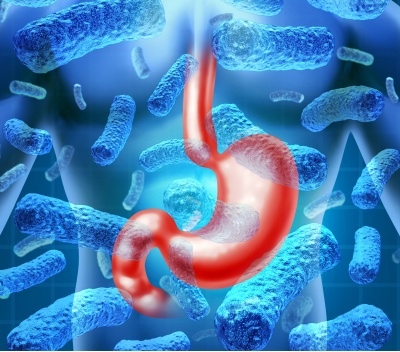
Celiac disease, or, in other words, gluten enteropathy - a congenital disease of a chronic nature, in which there is insufficient splittingspecial gluten protein. Parthenogenesis of thisdisease has not yet been identified. However, scientists interpret the causes of celiac disease as follows: in the initial stage of the disease glutenjibe with some epithelial cell receptors that are damaged by the virus. In response to the proteinis a gradual atrophy of the villi in the small intestine. In this process very actively involvedlymphoid tissue of the gut, resulting in the observed intensity increase in the number of plasma cells and lymph in the mucosa of the small intestine, which leads to the development of active antigliadin antibodies - the mainmarkers of celiac disease. Of violation of thepermeability due priniknoveniya gluten protein in enterocytes, also damaged cell lysosomes. In the case of a running process begins to produce autoantibodies - the brainchild of an autoimmune mechanism, ie, the body begins to work against itself. After that active cells of celiac disease start to damage the mucosa of the duodenum 12. This promotes a gradual deceleration somatomediynoy system that reduces secretion of secretin, gastrin, motilin hormone and othergastro-intestinal tract. All this complex changes in the small intestinal mucosa is designated as atrophygiperregeneratornogo character. Throughout a significant decrease in gastrointestinal wall surface activity of enzymes, leading to increased permeability of the intestinal mucosa. This gives rise to the development of malabsorption syndrome.
The etiology of celiac disease is genetic. An interesting fact is that the incidence of celiac disease are virtually absent inAsian countries. Scientists suggest that immunity to the disease develops diet Asians - soybeans and rice. Very often recorded cases of celiac disease on the second year of baby's life. Less common disease of older (4-7 years). This latediagnosis is due to the fact that celiac disease starts its activity in tandem with any intestinal infection. Conclusion: Thegenetic predisposition plus infectious bowel disease, as well - a wholly manifestation of celiac disease. Not so long ago the doctors were wrong, considering that intestinal infections - is the cause of celiac disease. Later it turned out that it onlypredisposing factor, because the "root" of the disease laid in genetics.
Symptoms of celiac disease sluyuschim expressed as follows:
- Light or "colored chair with a terribly unpleasant smell;
- The growth of the belly;
- Pain in the navel;
- Poor appetite;
- Prolonged diarrhea;
- Reduction of the total body mass;
- Food allergy;
- Phosphorus-calcium deficiency;
- Obvious damage to the nervous system.
Current treatment for celiac disease is of two types: medical therapy and a gluten-free diet. The latter option does not relieve the patient from celiac disease completely, but significantly reduce the symptoms of the disease and will not allowit to develop. Treatment is carried out in Germany are usually complex. Experts on the basis of symptoms, form a special diet and monitor the patient for some time. Stay alert - contact your doctor at the first call! Health to you and your loved ones!

